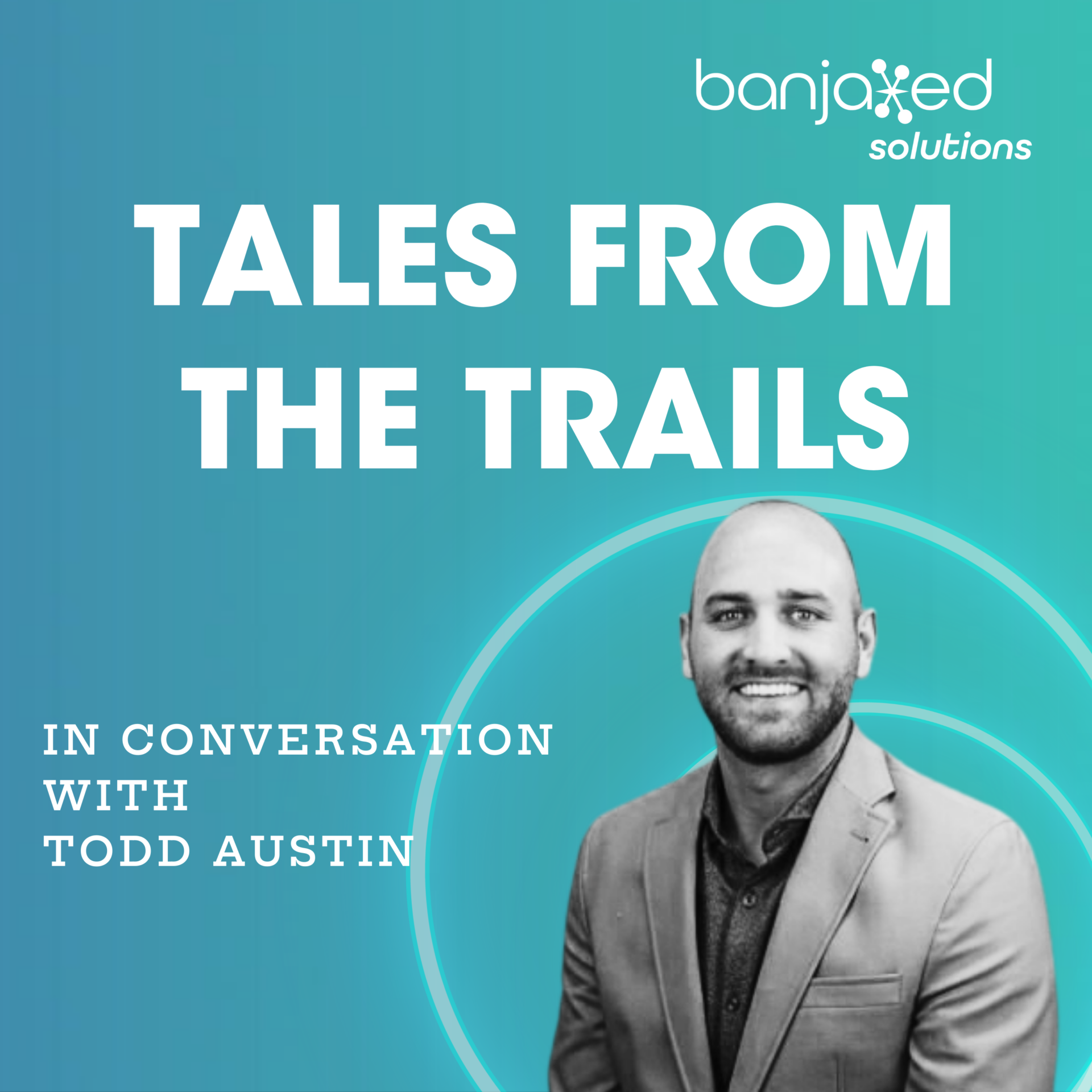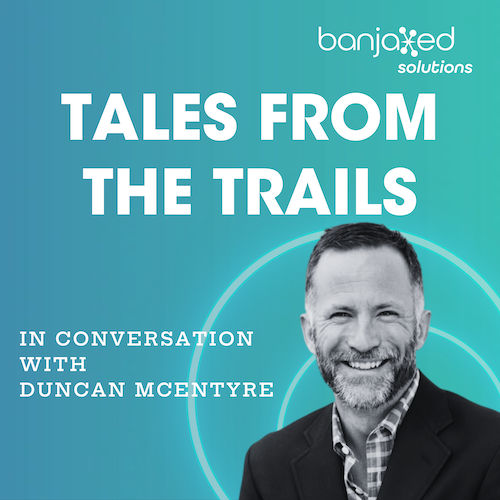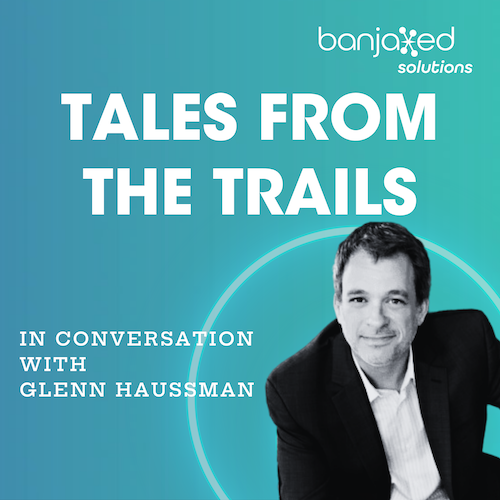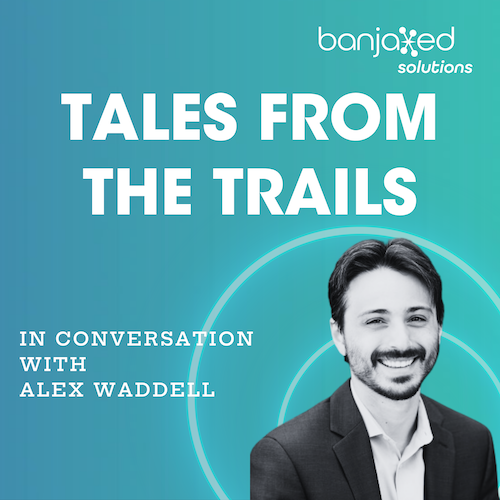
Guest: Todd Austin, Home Care Pulse
We’re back on the trail this week, diving into care employee education with Todd Austin, President and COO of Home Care Pulse—a care intelligence platform. By analyzing data and providing insights, training, surveys, and reputation management tools, HCP enables care organizations outside of the hospital environment (called post-acute care) to provide the best work environment and patient service possible.
From home health and rehab, to assisted living, hospice and memory care, health organizations want to provide care employee education that enhances nurses’ ability to support each unique patient. Data about each of those cases can be difficult to uncover and untangle without the right platform.
Using Salesforce, the data powerhouse, HCP’s technology listens to patient and caregiver feedback, intelligently identifies areas of improvement, and presents relevant care employee education resources, including training and insights about their assigned cases. The end result? Talented caregivers obtain the knowledge and tools necessary to handle each case with care and confidence.
Salesforce Data Powers Care Employee Education Technology
Don’t have time for the full episode? Here’s what you need to know:
The Highlights
0:37 - . . .[HCP] services the post acute space. We have a variety of brands—HCP is the parent brand and primarily what we do is help elevate both the employee and patient experience across all different care settings that are outside of the hospital.
1:03 - Also home health, hospice home care, assisted living, memory care. We cover a lot of different settings and these organizations have a lot of different critical impact items that are coming across their plate. So technology has been our best friend as we have grown and scaled.
1:27 - If you're driving down the road and you look to your left or your right, you'd probably see an assisted living community, whether it's a Sunrise or Parkdale, a skilled nursing facility. Maybe someone had surgery and they've gone into a short stay. Or situations where home health has come in, to a loved one or a parent that's aging, a grandparent, and help them through transitional points in their life, whether that's just home health or moving into end of life care like hospice. All settings, as long as you don't walk into a hospital, we're probably involved.
2:10 - Our mission is to elevate care by providing insights, training and tools to meaningfully improve every care experience.
2:35 - A lot of it is about trust. When you think about home health or assisted living, skilled nursing, these employees are put in situations where they're asked to care for someone that has constantly changing chronic conditions. What our technology helps do is listen to the employee. If you're walking into a home with someone that has dementia care and we check your records and see you haven't taken dementia care training in a while, we're going to feed you a dementia care training so that you're more comfortable to take care of that person at home.
3:08 - We're constantly looking at data to help build trust for each of these employees. Many times if you were to go into a home, you're by yourself there. There's not a colleague that you can just lean over to and say, 'Hey, how do you do this?' like there is in an acute setting, like a hospital where they can ring a bell and someone else comes in and helps. They're really on their own. So they rely on technology a lot to get the answers and what we don't want them doing is going to Google. We want them utilizing the technology we provide to get the correct answers to provide the right resources.
3:42 - Part of that is just listening to employees constantly, taking their feedback, running it through AI and machine-learning and allowing that to then prescribe the right solutions for both the patient and the employee.
4:15 - The trust model consists of five factors. . . When you think about your workforce, it's credibility, respect, fairness, pride and camaraderie that really cultivate positive employment experience. Some of those are toward your colleagues. Some of them are the work you do. So taking pride in the work you do or celebrating with your colleagues, and some are items us as leaders of business have to provide, whether that's credibility or fairness.
4:45 - When it really comes down to it, I think about three pillars. If you walk into any meeting with someone on your team, you should ask yourself these three things. Do they have the authority, the autonomy, and the tools to do the job? I think those are the most important things to focus on and as we've learned over the years of, millions of surveys with employees and millions of data points, those are the three questions you can ask yourself and if there are positive answers that come from that, then you're going to have a really good employment experience.
5:29 - We're a data business. So we've got to be data driven ourselves and think about what we do as a metric based-leadership team. We think a lot about the winning-by-design framework, which is results, effort, knowledge and skills. We use that internally and Salesforce is that engine. Whether it's CPQ or customer data, renewal data, even some of our product utilization data, we pump back into Salesforce. So it's our hub. We live and die by the data that's pumped out of Salesforce.
6:13 - It was definitely an interesting time. It's a fun story. We had just acquired an organization that provided training. I was getting ready to fly out to that business. It was based in North Carolina and COVID hit. Talk about an interesting time to acquire an organization and have to have a transition out. But ultimately what we found was, the world shut down as we all know it, and we went into fast action response. Took a lot of the guidelines from CMS and published a training and it was the first one on the marketplace and had a lot of critical information that helped frontline direct care workers navigate essentially COVID-19 for the next two years.
7:09 - I think we decide that every day. It's an evolving process, but I think we really got serious about it probably 12-18 months ago when we, I'd say we outgrew our previous CRM and just ultimately ran into limitations around how we wanted it to drive the business versus how we wanted it to collect data. That was a transformative time for us, but we're constantly working on it. I think it's an evergreen process.
7:41 - My brother actually. When I was fairly young, he was hit by a truck and spent the majority of his life bed-bound. We had nurses coming into our home all the time and the impact that those individuals make on everybody's lives really attracted me to it.
8:00 - I never wanted to be a provider per se, but I knew that there were ways that we could help influence the care setting through technology. I had some great mentors early on in my career that led organizations that ultimately were acquired by Adobe. They always encouraged us to go after our passions and the healthcare industry was a big passion of mine and the fact that I get to be a part of a business that makes an impact every single day in individuals’ lives that are at a very critical time. I think we can probably all relate to times, whether we're having children and bringing children into life and all the emotion that happens with that or as loved ones are transitioning into different care settings that may not be in the home. I love the fact that what we do gets to bring more recognition to those individuals that do all the work and make our lives much easier.
8:57 - He's in a better place. But there's silver linings and everything, positive or negative. The accident was hard, but the results were amazing—brought our family closer together. There's the nurse . . . Barbara. She spent a ton of years in our home. He was bed bound and in a wheelchair for 8 years almost. He lived till he was 16 years old and I still get Christmas cards from Barbara. This is 35 years later that these people are still in contact with me. It's an industry that makes a huge impact.
9:40 - We'll always take social recognition. We're hiring like crazy, so if you're in the job market and you want to work in a meaningful career and at an organization that truly cares, that's a great place you can support us.
9:51 - Outside of that, next time you're in a care setting, and a caregiver, nurse, or clinician, walks in, thank them, because they're dealing with a lot of different emotional settings at the same time, while trying to provide your loved one with the best care. That's the number one thing I would say is look up and say thanks to those around you.
10:30 - We're continuing to be inquisitive. How do we bring products to the market that improve patient and employee experience in post-acute care and long-term care? We want to be an innovator in our space and continually bring the right tools and solutions to the healthcare ecosystem. I think that ties back to our mission: insights, training, and tools to meaningfully improve care experience. I think we're staying on that track.
Does your CRM hinder more than help your employees? You just need the right platform and consulting partner. Drop us a line to hear how we can nurse your internal operations back to full health.



